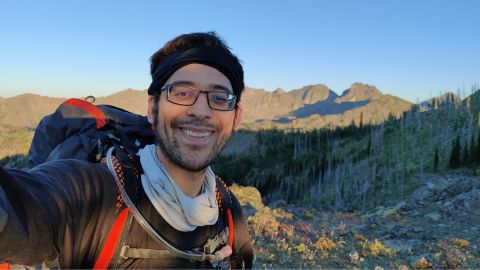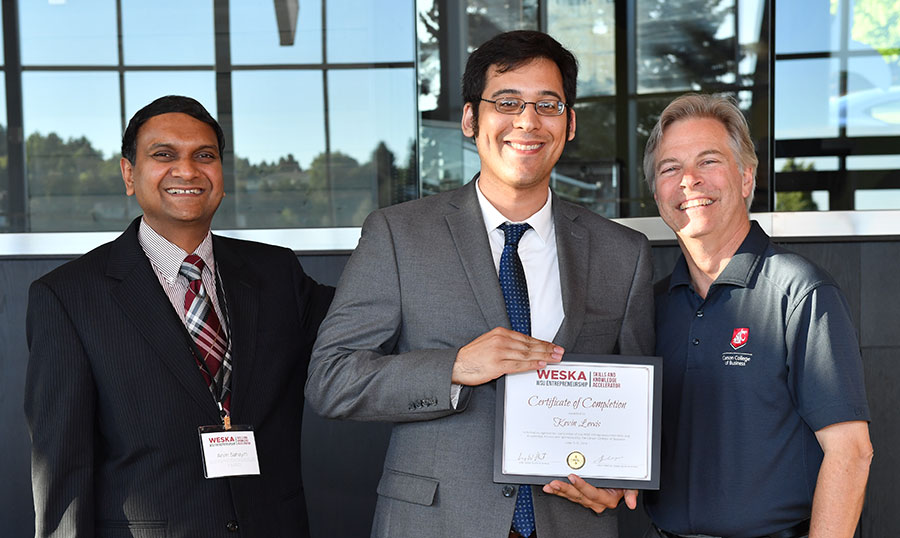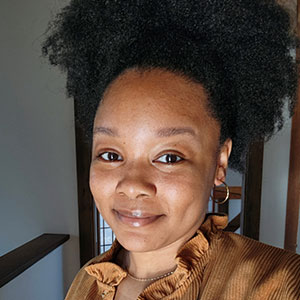Strong bonds and a startup
Kevin Lewis is a mechanistic structural biologist who works as chief scientist at Photon Biosciences in Spokane, Washington. And he’s living proof that maintaining strong connections throughout your career can be just as important as forging new ones.
Lewis is from Oak Harbor, a beautiful small city on Whidbey Island in Washington state. He attended Washington State University for his undergraduate studies and earned dual degrees: a B.S. in microbiology and a B.A. in creative writing.

“I really liked the research I was doing at the laboratory I worked for, so I stayed for graduate school,” he said. “I moved away from microbiology and into physical chemistry, because I found that more interesting.”
Lewis’s graduate research from 2010 to 2016 focused on the structure–function relations of metalloproteins, especially calsequestrin. Calsequestrin is a calcium-sequestering protein within the sarcoplasmic reticulum of the muscle.
He and other researchers in ChulHee Kang’s lab at WSU investigated the post-translational modifications of human, rabbit, rat and mouse calsequestrin using techniques such as X-ray crystallography matrix-assisted laser desorption/ionization with a time-of-flight mass spectrometry, or MALDI TOF analysis.
A word-of-mouth recommendation
As the end of his graduate studies approached, Lewis heard that Ailong Ke’s lab at Cornell University in Ithaca, N.Y., was in need of a new postdoc. A former graduate student of the Kang lab had just completed a postdoctoral stint with Ke and, knowing about Lewis’ research interests and work ethic, recommended him for the position.
At Cornell, Lewis studied CRISPR adaptation and RNA structure–function relationships in small structured RNAs important for CRISPR targeting. This structural biology research was interesting, Lewis said, but he found that enjoyed his graduate research more.
“CRISPR/Cas9 is structural biology,” he said, but added that it applied to molecular biology, not physical chemistry. “In some ways, it was a step backward in my research interests.”
Recruited back home
Toward the end of his time at Cornell in 2017, Lewis received a call from graduate adviser Kang. Kang and James Brozik, another professor at WSU and a member of Lewis’ doctoral committee, were starting a new biotechnology company focused on next-generation biological imaging probes. They wanted Lewis to consult for their company as an expert in computational enzymology and protein structure–function relations.
“I came back as a postdoc first, in my graduate student lab with a different protein,” said Lewis. “It was a normal postdoc in every aspect other than that my PI was giving me the greenlight to moonlight as a consultant.”
During Lewis’ first year back at WSU in May 2018, he concentrated on his postdoctoral research. He was also acting as an external consultant for Photon Biosciences, a position classified as an independent contractor and not a full-time employee. The consultancy required group meetings with the extremely small team of two co-founders and two scientists, discussing the assays and experiments that would be required to achieve the founders’ goals for the company.
In his second year, Lewis was employed by both Photon Biosciences and WSU on a 50/50 appointment. The postdoctoral fellowship covered half of his salary and all benefits and was the research that contributed to his publications. The company work paid the second half of his salary.
After Lewis completed his postdoctoral studies in May 2020, he began working full time with Photon Biosciences as a senior research scientist. His work now concerns development of arrays and assays to optimize the diagnostic phosphorescent probe that the company specializes in. The subject of their new grant, cryogenic electron tomography, has been his recent primary focus.

Advice for job seekers
Lewis’ experience show how important it is to stay in contact with your graduate advisers, committee members and graduate school colleagues, because they may be the key to a new opportunity in your field. This goes double for those who are specifically interested in working for startup companies, as they are often founded by university professors who want to translate their research into a product or service.
Lewis offered this advice for people interested in being a key member of a small team and having more control over their research: “If you want to get a position in a startup where you have a lot of say and control, look for smaller startups so you can get in on the ground floor. A lot of new startups are companies being funded by SBIR or STTR grants.”
The small business innovation research (SBIR) and small business technology transfer (STTR) grants are coordinated through the U.S. Small Business Association and are therefore publicly available. SBIR and STTR grants are awarded through agencies such as the National Institutes of Health and the National Science Foundation. Searching through these grants for research subjects interesting to you can be a good way to discover what startups are potentially looking for new hires.
In my next column, I will cover Lewis’ responsibilities at Photon Biosciences and how they differ from a research scientist position at a larger company.
Enjoy reading ASBMB Today?
Become a member to receive the print edition four times a year and the digital edition monthly.
Learn moreFeatured jobs
from the ASBMB career center
Get the latest from ASBMB Today
Enter your email address, and we’ll send you a weekly email with recent articles, interviews and more.
Latest in Careers
Careers highlights or most popular articles

Embrace your neurodivergence and flourish in college
This guide offers practical advice on setting yourself up for success — learn how to leverage campus resources, work with professors and embrace your strengths.

Upcoming opportunities
Apply for the ASBMB Interactive Mentoring Activities for Grantsmanship Enhancement grant writing workshop by April 15.

Quieting the static: Building inclusive STEM classrooms
Christin Monroe, an assistant professor of chemistry at Landmark College, offers practical tips to help educators make their classrooms more accessible to neurodivergent scientists.

Unraveling oncogenesis: What makes cancer tick?
Learn about the ASBMB 2025 symposium on oncogenic hubs: chromatin regulatory and transcriptional complexes in cancer.

Exploring lipid metabolism: A journey through time and innovation
Recent lipid metabolism research has unveiled critical insights into lipid–protein interactions, offering potential therapeutic targets for metabolic and neurodegenerative diseases. Check out the latest in lipid science at the ASBMB annual meeting.

Hidden strengths of an autistic scientist
Navigating the world of scientific research as an autistic scientist comes with unique challenges —microaggressions, communication hurdles and the constant pressure to conform to social norms, postbaccalaureate student Taylor Stolberg writes.

